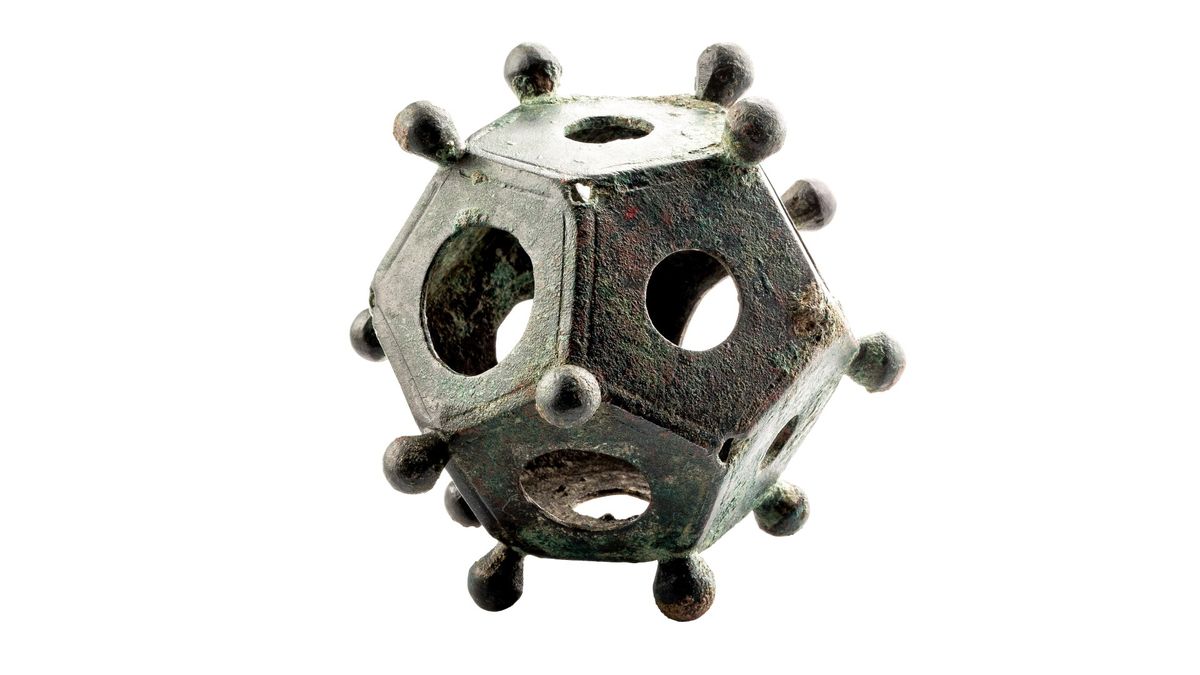
Jan 26, 2023
1 min, 3 secs
A metal detectorist in Belgium has unearthed a fragment of a mysterious bronze artifact known as a Roman dodecahedron that is thought to be more than 1,600 years old.More than a hundred of the puzzling objects — hollow, 12-sided geometric shells of cast metal about the size of baseballs, with large holes in each face and studs at each corner — have been discovered in Northern Europe over the past 200 years."There have been several hypotheses for it — some kind of a calendar, an instrument for land measurement, a scepter, etcetera — but none of them is satisfying," Guido Creemers(opens in new tab), a curator at the Gallo-Roman Museum in Tongeren, Belgium, told Live Science in an email.(Image credit: Kris Vandevorst/Flanders Heritage Agency)Metal detectorist and amateur archaeologist Patrick Schuermans had found the fragment months earlier in a plowed field near the small town of Kortessem, in Belgium's northern Flanders region.A translated statement by the Flanders Heritage Agency(opens in new tab) said the fractured surfaces of the fragment indicate that the dodecahedron had been deliberately broken, possibly during a final ritual."Thanks to the correct working method of the metal detectorist, archaeologists know for the first time the exact location of a Roman dodecahedron in Flanders," the statement said.
